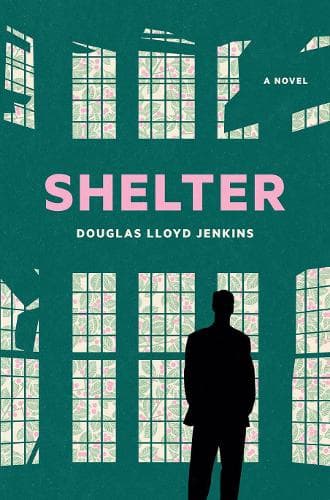Review: Shelter: A novel
Reviewed by Greg Fleming
Douglas Lloyd Jenkins’ debut novel is an engaging tale of gay love, won and lost, amid Auckland’s changing skyline. It opens in 1994 with a scenario familiar to many Auckland readers: Joe, a 21-year- old gay man who hasn’t yet come out, is stuck in morning rush hour traffic when he sees a hot-looking guy who lets him cut in.
It appears he’s reading a book while driving which intrigues Joe further. He’s fascinated and ogles the handsome stranger, shifting his gaze from his rear-view to his towing mirror, entranced. It turns out that the handsome stranger is the new builder at Joe’s worksite – this isn’t the last time Shelter makes use of the odd rom-com trope.
Joe’s enthralled but Leo, who resembles the actor Robert Mitchum, is taciturn and distant. Joe tries to follow him home, peers into his ute in search of any info on him. All Joe knows about Leo is that he is older, university educated, likes ‘weird’ music and reads French philosophy.
He has no idea if Leo’s gay or not; still, Joe takes a chance and things move quickly. The relationship is consummated on the day Kurt Cobain dies and soon the two are inseparable. As their relationship develops, Leo shares with Joe his love of books, art, architecture and especially old buildings: “They are my friends, friends who need rescuing,” he says. “They’re outcasts like me, caught in the wrong time and place.” Leo, ever the malcontent, likes nothing better than to walk the city streets at night and sip at a beer in an old pub “surrounded by nicotine-stained men.”
Lloyd Jenkins, who’s penned some of our finest books on architecture, has said he wrote Shelter because he wasn’t interested in writing the books publishers wanted him to write. He thought a “romanticised, emotional connection to the city” he loves might be a stronger heritage platform than any standard non-fiction history.
He was right. This is an engaging tale of lust and longing, written with such verve that readers will forgive the odd stilted character; party boy barista Tony, for example, one of the many men Joe meets after Leo’s initial departure, or the odd episode that veers toward cliché such as when Joe gets revenge on a couple of homophobic property investors.
Auckland readers who’ve lived in the city since the 1990s will recognise many of the settings: Kingsland’s Canton Café, where Leo introduces Joe to eating with chopsticks, which gives an indication how far the city has come culturally in the ensuing years, the Prince Arthur Tavern and the infamous Bridgeway Tavern on Hobson Street, where Joe is roughed up for being gay and thrown into the street (another instance of how far we’ve progressed.)
It's no spoiler to say that Joe and Leo part ways, leaving Joe to be befriended by an elderly widow who recognises in him an innate loneliness. The pair, with a school friend of Joe’s, start a hugely successful property development company so Joe, now ‘out,’ goes from tradie-for-hire to wealthy Auckland property developer (before long he’s driving a Lotus) and for a while we leave the Leo narrative and follow Joe’s meteoric rise. When Leo returns, a little down on his luck, the relationship is rekindled and the focus goes on whether a love forged in the carefree 90s can survive in the new millennium — and how well does Joe really know Leo?
Shelter is great entertainment and as much a love letter to a city as it is the story of Leo and Joe; the wonder is that it succeeds on both counts.
Reviewed by Greg Fleming
